Ten on faculty receive new appointments
|
|||||||||||
Two members of the University faculty— Steven Shevell and Geoffrey Stone—have been named distinguished service professors, while eight others have received named professorships. The eight faculty members who received named chairs are: John Alverdy, Albert Bendelac, Francisco Bezanilla, Steven Collins, Judith Farquhar, Sarah Gehlert, Christopher Gomez and Neil Guterman.
Steven Shevell, Professor in Psychology, Ophthalmology & Visual Science, and the College, who is a prominent researcher in human vision with a specialization in color vision, has been named the Eliakim Hastings Moore Distinguished Service Professor.
He is president of the Vision Sciences Society and is the founding associate editor of the Journal of Vision, senior editor of Vision Research and the editor of the Optical Society of America’s most recent edition of The Science of Color.
His work is supported with grants from the National Eye Institute, and he also has received support from the National Science Foundation.
In his lab, Shevell and his students investigate the processes of the eye and brain that serve vision. Most of the research focuses on visual pathways that mediate color and brightness perception.
Shevell has published extensively on subjects ranging from genes that mediate abnormal color vision, the neural processes that determine color appearance and the human ability to discount illumination in the service of maintain constant object colors.
Shevell joined the Chicago faculty in 1978, received an A.B. in Psychology and M.S. in Engineering from Stanford University in 1973; an M.A. in Statistics from the University of Michigan in 1975; and a Ph.D. in Psychology (mathematical psychology area) from the University of Michigan in 1977.
He is chair of the Psychology Department’s Graduate Program in Integrative Neuroscience.
Geoffrey Stone, the Harry Kalven Jr. Distinguished Service Professor in the Law School and the College, has been named the Edward H. Levi Distinguished Service Professor.
Stone has been a faculty member in the Law School since 1973 and served as its Dean from 1987 to 1993. He also was Provost of the University from 1993 to 2002.
An authority on the First Amendment, civil rights and constitutional law, Stone is the author of numerous books, including Top Secret: When Our Government Keeps Us in the Dark (2007); War and Liberty: An American Dilemma (2007); Perilous Times: Free Speech in Wartime From the Sedition Act of 1798 to the War on Terrorism (2004); and Eternally Vigilant: Free Speech in the Modern Era (2002). Stone also is co-editor of The Supreme Court Review and the chief editor of a 15-volume series called Inalienable Rights.
Stone is currently writing a new book, Sexing the Constitution, which will focus on the relationship between sex, religion and law from a historical perspective.
His many affiliations include serving on the national board of directors of the American Constitution Society, the national advisory council of the American Civil Liberties Union and as chair of the board of the Chicago Children’s Choir.
Stone received his undergraduate degree from the University of Pennsylvania in 1968 and his law degree from Chicago in 1971.
An authority on the surgical treatment of obesity and on the pathophysiology of surgical infections, John Alverdy, Professor in Surgery, has been named the Sara and Harold Lincoln Thompson Professor.
Alverdy was the first surgeon in the Chicago area to perform gastric bypass as a treatment for obesity. He has vast experience in this specialty, has built a large bariatric practice at the University and has been an active innovator in the move toward safer, more effective and less invasive ways to perform weight-loss-inducing operations.
More recently, he has focused on laboratory studies designed to understand the “thought process” and communication tools used by the bacteria responsible for surgical infections, particularly pseudomonas aeroginosa, which can cause devastating tissue damage, sepsis and death in surgical and intensive-care patients.
He joined the Chicago faculty in 1993 as an Associate Professor and was promoted to Professor in 2002. In 2007, he was named Vice-chairman for Academic Affairs and Faculty Promotions.
A 1975 graduate of Marquette University, Alverdy completed medical school at Loyola University, followed by surgical training at Michael Reese Hospital and Medical Center and a fellowship in trauma and burn research at the University of California, San Francisco. He joined the medical staff at Michael Reese in 1985, where he became the director of the trauma and medical/surgical intensive-care units.
Alverdy serves on the editorial boards of several journals, including the Journal of Surgical Research, Surgery for Obesity and Related Disorders, Surgical Infections, Journal of Gastrointestinal Surgery and the Open Gastroenterology Journal.
One of the world’s leading authorities on how the immune system recognizes lipids, Albert Bendelac, Professor in Pathology, has been named the A.N. Pritzker Professor in Pathology.
Bendelac, an investigator in the Howard Hughes Medical Institute, studies natural killer T cells, a component of the immune system that recognizes fatty substances known as lipids, rather than proteins.
Bendelac and his colleagues have been instrumental in identifying the substances that activate NKT cells and showing that NKT cells, and the lipids they recognize, have specialized functions in the immune system. Learning how to manipulate these immune cells could lead to better therapies for cancer and other diseases.
Bendelac received his M.D. and Ph.D. in immunology from University of Paris and completed his residency at the Assistance Publique – Hôpitaux de Paris. After a fellowship in clinical immunology at the Fondation pour la Recherche Médicale, he came to the United States in 1988 as a postdoctoral fellow at the National Institute of Allergy and Infectious Diseases. From 1994 to 2002, he was a member of the molecular biology faculty at Princeton University. He came to Chicago in 2002 as a Professor in Pathology, served as chairman of the committee on Immunology from 2003 to 2007, and was named a Hughes Investigator in 2005.
Bendelac has won numerous awards, including selection as a Laureate of the Academy of Medicine of Paris. He serves on the editorial board for the Journal of Experimental Medicine and from 2001 to 2003, was a member of the Faculty of 1,000, a select group that chooses and reviews the most important papers in the field.
Francisco Bezanilla, Professor in Biochemistry & Molecular Biology, has been named the Lillian Eichelberger Cannon Professor.
A member of the National Academy of Sciences and the Latin American Academy of Sciences, Bezanilla is a pioneer in understanding ion channel gates—the doorways in cell membranes that regulate ion flow and electrical impulses between cells.
Bezanilla’s work focuses on how cells monitor and regulate ion flow through these channels. His main interest is how the voltage across the cell membrane regulates the action of specialized membrane ion channels and transporters. By manipulating the channel protein with molecular biological techniques, and using electrical and optical techniques to monitor structural changes, he has been a pioneer in the effort to understand channel function at the molecular level, which is expected to lead to the development of many new medications.
The recipient of numerous honors, Bezanilla joined the University in 2006. From 1977 to 2005, he served as Hagiwara professor of neuroscience at the University of California, Los Angeles. Prior to that, he taught at the University of Pennsylvania Medical School, the University of Chile, the University of Rochester School of Medicine, and Catholic University, Chile.
He completed post-doctoral fellowships at Rochester and the Laboratory of Biophysics at the National Institute of Neurological Disorders and Stroke at the NIH.
Bezanilla earned three degrees from Catholic University, Chile: his B.S. in Biology in 1964 and his M.S. and Ph.D. in Biophysics in 1967 and 1968.
Steven Collins, Professor and Chairman of South Asian Languages & Civilizations, and Professor in the College, has been named the Chester D. Tripp Professor in the Humanities.
A renowned scholar of Buddhism, Collins specializes in the social and cultural history of Buddhism in pre-modern and modern South and Southeast Asia, and he is among the world’s foremost experts on Pali language and literature. Pali is best known as the language of the earliest extant Buddhist canon and as the liturgical language of Theravada Buddhism.
Collins’ most recent book is A Pali Grammar for Students, published in 2006. His other books include Selfless Persons: Imagery and Thought in Theravada Buddhism, and Nirvana and other Buddhist Felicities: Utopias of the Pali imaginaire. His current research interests include the translation of Pali texts, civilization and gender, and possession.
Trained at Oxford University, Collins was a graduate scholar at Oxford’s Wolfson College and a Junior Research Fellow in Oriental Languages at Oxford’s Exeter College. He taught at Bristol University, Indiana University and Concordia University in Montreal before joining the Chicago faculty in 1991.
He is a council member and a former director of the Pali Text Society, which promotes the study of Pali. Collins has served on the editorial board of the Journal of the International Association of Buddhist Studies since 2001, and he has served on the steering committee of the American Academy of Religion’s Buddhism section.
Judith Farquhar, a leading expert on traditional medicine in China and Professor in Anthropology and the College, has been named the Max Palevsky Professor.
Farquhar has done extensive fieldwork, including research on self-care techniques and health attitudes on the part of urbanites in Beijing. She also has studied entrepreneurial medicine in northern China and conducted field research on case management in traditional Chinese medicine at the Beijing College of Traditional Chinese Medicine and the China Academy of Traditional Chinese Medicine.
She is the author of Appetites: Food and Sex in Post-Socialist China and Knowing Practice: The Clinical Encounter of Chinese Medicine. Farquhar also served as president of the Society for Cultural Anthropology from 2005 to 2007.
Farquhar recently co-edited the collection Beyond the Body Proper: Reading the Anthropology of Material Life. She also is a fellow at the National Humanities Center, where she is working on a book titled A Thousand Happy Occasions: Nurturing Life in Millennial Beijing.
After studying at Antioch College, Farquhar enrolled at Chicago, where she received an A.M. in Social Sciences in 1975 and an A.M. in Anthropology in 1979. She received a Ph.D. in Anthropology from the University in 1986. She was an Instructor in the Social Sciences Collegiate Division from 1985 to 1986, and joined the University of North Carolina anthropology faculty in 1986.
She returned to Chicago to teach in the Department of Anthropology in 2004.
Sarah Gehlert, a nationally renowned expert on the connections between social environment and health, has been named the Helen Ross Professor in the School of Social Service Administration.
Gehlert is a member of the research team that received a $23 million Clinical and Translational Science Award from the National Institutes of Health. The team, based at the University Medical Center, is part of an NIH effort to build a national consortium of select centers that will “transform how clinical and translational research is conducted,” ultimately enabling researchers to provide new and better treatments more efficiently and quickly to patients.
As part of that award, she leads a group of researchers that has formed the Institute for Translational Medicine, a community-based program that operates across academic departments to generate new methods, tools and systems of discovery. She is one of the leaders of the Community Translational Sciences Division within the institute.
Working closely with the committee on clinical and translational science, the Community Translational Sciences Division guides the community engagement effort of the institute, which will offer a novel curriculum in clinical and translational research.
Gehlert is the principal investigator and director of the Center for Interdisciplinary Health Disparities Research, which is using a $9.7 million federal grant to develop a transdisciplinary approach to study why African-American women have unusually high rates of breast cancer mortality at an early age.
Gehlert is president of the Society for Social Work and Research and co-editor of the Handbook of Health Social Work. She has published broadly on issues about the interactions of genes and environment, women’s health and mental health, psychosocial aspects of epilepsy and other chronic health conditions, as well as issues on maternal and child health.
Her investigations of the diagnostic validity of premenstrual dysphoric disorder led to the publication of several papers, including “Symptom Patterns of Premenstrual Dysphoric Disorder as Defined in the Diagnostic and Statistical Manual of Mental Disorders-IV” and “Differentiating Premenstrual Dysphoric Disorder from Premenstrual Exacerbations of Other Disorders: A Methods Dilemma.”
Gehlert earned her M.A. in anthropology and an M.S.W. from the University of Missouri-Columbia, and a Ph.D. in Social Work from the George Warren Brown School of Social Work at Washington University, St. Louis.
A leading authority on the molecular and cellular mechanisms of neurodegenerative disease, Christopher Gomez, Chairman of Neurology, has been named the Albina Y. Surbis Professor in Neurology.
Gomez is widely recognized for his clinical expertise in the diagnosis and treatment of spinocerebellar ataxias and his research on the molecular and genetic causes of these disorders. At the University of Minnesota, he established the Ataxia Clinic, a nationally recognized specialty clinic for patients with these rare degenerative diseases. He also is a founding member of the Cooperative Ataxia Group, a national consortium of ataxia specialists.
In his laboratory, Gomez studies how mutations in ion channels or other essential proteins lead to neurodegeneration using cellular and mouse models. A better understanding of these mutations may help to identify new therapies for patients with neurodegenerative disorders.
Gomez earned his A.B. in Biology from Chicago in 1977, followed by his Ph.D. from the Committee on Immunology in 1981 and his M.D. from the Pritzker School of Medicine in 1983. He completed an internship at Michael Reese Hospital and residency training in neurology at the University. In 1987, he joined the neurology faculty at UCLA and simultaneously began a postdoctoral fellowship with Leroy Hood at the California Institute of Technology.
Before his appointment at Chicago in 2006, Gomez taught in the Department of Neurology at Minnesota, where he began as an assistant professor and was later promoted.
Gomez was a visiting professor at the University of Puerto Rico, the Centre de Recherche de Biochimie Macromoleculaire in Montpellier, France, and Central South University in Changsha City, Hunan Province, China.
At Chicago, he has led the formation of a Translational Neuroscience Training Program, and has had a major role in forming research, education and recruiting collaborations between the basic and clinical neurosciences within the newly formed Neuroscience Institute.
Neil Guterman, a leading expert on child abuse and neglect and violence exposure in children, has been named the Mose and Sylvia Firestone Professor in the School of Social Service Administration.
Guterman currently directs two studies that are examining the effectiveness of strategies to prevent child abuse and neglect, which are funded by the Centers for Disease Control and Prevention and the Children’s Bureau of the Department of Health and Human Services. He also is directing a third study that is examining the role of fathers in the origin of physical child abuse and neglect.
Guterman also is the principal investigator of a study examining adolescents’ exposure to violence outside the home.
Guterman, who also is a Faculty Associate in the Chapin Hall Center for Children, has advised the U.S. Surgeon General’s Office, the CDC, the International Society for Prevention of Child Abuse and Neglect, Prevent Child Abuse America, and the National Conference of State Legislatures about issues related to violence against children.
He is the author of Stopping Child Maltreatment Before it Starts: Emerging Horizons in Early Home Visitation Services, as well as numerous papers on family risk, child-abuse prevention and children’s exposure to community violence.
He was associate professor at the Columbia University School of Social Work before joining the Chicago faculty in 2006.
Guterman received a B.A. from the University of California, Santa Cruz in 1983, an M.S.W. from the University of Michigan in 1986 and a Ph.D. in social work and psychology from Michigan in 1992.
![[Chronicle]](/images/sidebar_header_oct06.gif)
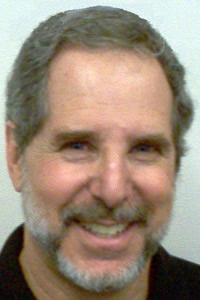 Steven Shevell
Steven Shevell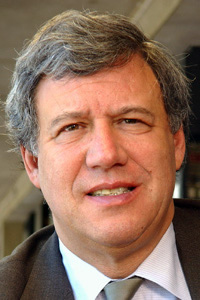 Geoffrey Stone
Geoffrey Stone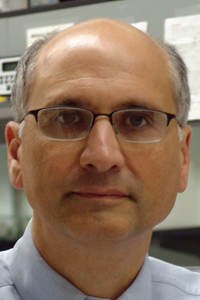 John Alverdy
John Alverdy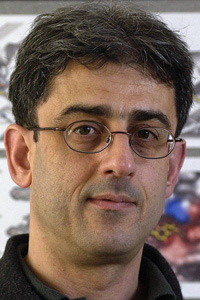 Albert Bendelac
Albert Bendelac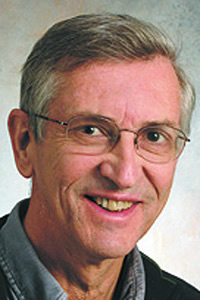 Francisco Bezanilla
Francisco Bezanilla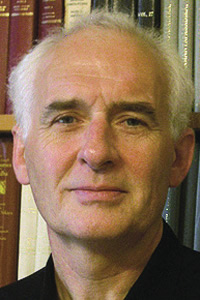 Steven Collins
Steven Collins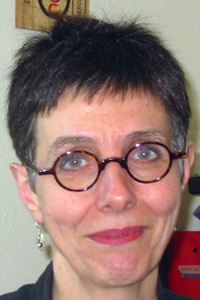 Judith Farquhar
Judith Farquhar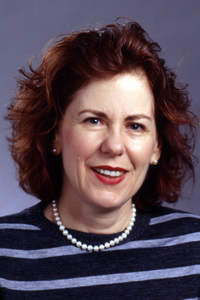 Sarah Gehlert
Sarah Gehlert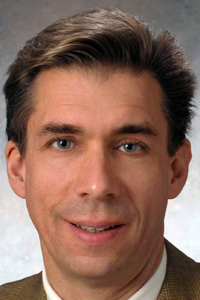 Christopher Gomez
Christopher Gomez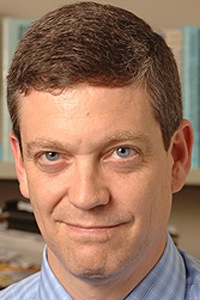 Neil Guterman
Neil Guterman